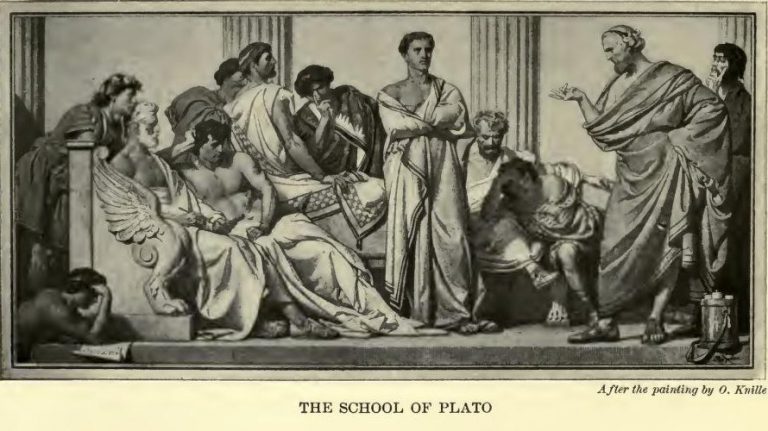I have a friend, a postmodernist, who believes that language constitutes thought. As a corollary, he believes that without language we couldn’t think. He told me recently that he first encountered the idea in a class he took on Plato. If all of Western philosophy indeed are footnotes to Plato, then I suppose it would be relatively easy to find just about any modern system in his thought. I got to thinking about my friend’s comment after reading this blog post on CathNews.
In this post, author John Kelly attempts to draw analogies between contemporary postmodern thought and ancient sophism and skepticism. While his article takes on a decidedly religious tone, he does make some interesting general claims about the impact to metaphysics of adopting a postmodern stance . Postmodernist epistemology (if there is such a thing – my friend assures me there isn’t) seems at least to nibble along the edges of skepticism if not consuming rather generous portions in it’s more melancholy incarnations. Adopting a thought/language identity thesis would seem to at least involve some kind of a denial of the traditional mind/world distinction since a thought of a dog is not a thought of a dog-out-there but is just “dog” in the head. The “ofness” or “aboutness”—the intentional state—seems to have disappeared.
Linguist Steven Pinker discusses problems with the language-is-thought view (what he calls “linguistic determinism”) in his excellent book The Stuff of Thought. After describing the view and many of the challenges it faces, he states the thesis of his book in terms that are in direct contrast to linguistic determinism: “language is a window into human nature, exposing deep and universal features of our thoughts and feelings; the thoughts and feelings cannot be equated with the words themselves.” (Kindle location, 3,012-38, emphasis mine) He then gives four reasons why language is a part of our mental framework but that the latter isn’t identical with the former.
First, we had to learn language in the first place. It seems difficult to describe a pre-linguistic scenario (one he believes had to be the case for humans) which then gave rise to language since in this pre-linguistic scenario, no one would ever have had a thought! Second, thoughts are stored in memory much more abstractly than bits of language. This is no trivial point. Take the word “God” for example. That simple word typically labels something much more complex and much more rich in the mind of the person that conceptualizes God. Third, limits of language don’t appear to limit thought. When the latter outgrows the former, we change the language to suit the expansion of thought. More importantly, it does appear that the latter outgrows the former and not vice versa. Finally, he says “the effect of language on thought must be limited [because] language itself is so badly suited as a medium of reasoning.” (Ibid.) Words, he says, don’t appear to contain the relevant information that is necessary for making logical inferences. The word “window” does not in any way imply “hole in the wall” simply by looking at the structure of the words. Abstract concepts “link” the two together.
This analysis of language is somewhat of tangential point to the conclusions Kelly is interested in drawing. But it isimportant in this respect: there seems to be a good degree of difficulty in talking about a “postmodern metaphysic” and this is brought into relief when one looks at how postmodernists understand language. As Kelly notes, postmodernism’s “denial of language’s ability to grasp what is real . . . refuses language status beyond expressing flux, asserting there is no fixed, universally shared meaning to words.” This, in my opinion, is a point of departure and should be deeply understood by anyone participating in “the conversation.”






